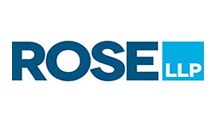With the rapid growth of ODR in a number of sectors it is vital to establish ethical standards to undergird the design, structure, practices, and implementation of global online dispute resolution systems. This simplified standard set builds on previous work by the National Center for Technology and Dispute Resolution on principles for ODR practice. Taken together they are intended to provide a touchstone for best practices, rules, qualifications, and certification efforts for online dispute resolution processes and practices.
ICODR Believes that quality Online Dispute Resolution (ODR) programs must be:
- Accessible: ODR must be easy for parties to find within a system and participate in and not limit their right to representation. ODR should be available in communication channels accessible to all the parties, minimize costs to participants, and be easily accessed by people with different types of abilities.
- Accountable: ODR systems must be continuously accountable to the institutions, legal frameworks, and communities that they serve. ODR platforms must be auditable and the audit made available to users. This must include human oversight of: i) traceability of the originality of documents and of the path to outcome when artificial intelligence is employed, ii) determination of the relative control given to human and artificial decision making strategies, iii) outcomes, and iv) the process of ensuring availability of outcomes to the parties.
- Competent: ODR providers must have the relevant expertise in dispute resolution, legal, technical execution, language, and culture required to deliver competent, effective services in their target areas. ODR services must be timely and use participant time efficiently.
- Confidential: ODR providers must make every genuine and reasonable effort to maintain the confidentiality of party communications in line with policies that must be articulated to the parties regarding i) who will see what data, ii) how and to what purposes that data can be used, iii) how data will be stored, iv) if, how, and when data will be destroyed or modified, and v) how disclosures of breaches will be communicated and the steps that will be taken to prevent reoccurrence.
- Equal: ODR providers must treat all participants with respect and dignity. ODR must seek to enable often silenced or marginalized voices to be heard and strive to ensure that offline privileges and disadvantages are not replicated in the ODR process. ODR must provide access to process instructions, security, confidentiality, and data control to all parties. ODR must strive to ensure on an on-going basis that no process or technology incorporated into ODR provides any party with a technological or informational advantage due to its use of ODR. Bias must be proactively avoided in all processes, contexts, and regarding party characteristics. ODR system design must include proactive efforts to prevent any artificial intelligence decision-making function from creating, replicating, or compounding bias in process or outcome. Human oversight is required in ODR system design and auditing to identify bias, make findings transparent to ODR providers and users, and eliminate bias in ODR processes and outcomes.
- Fair and Impartial: ODR must treat all parties equitably and with due process, without bias or benefits for or against individuals, groups, or entities. Conflicts of interest of providers, participants, and system administrators must be disclosed in advance of commencement of ODR services. The obligation to disclose such circumstances shall be a continuing obligation throughout the ODR process.
- Legal: ODR providers must abide by, uphold, and disclose to the parties relevant laws and regulations under which the process falls.
- Secure: ODR providers must make every genuine and reasonable effort to ensure that ODR platforms are secure and data collected and communications between those engaged in ODR are not shared with any unauthorized parties. Disclosures of breaches must be communicated along with the steps taken to prevent reoccurrence.
- Transparent: ODR providers must explicitly disclose in advance and in a meaningful and accessible manner: i) the form and enforceability of dispute resolution processes and outcomes and ii) the risks, costs including for whom, and benefits of participation. Data in ODR must be gathered, managed, and presented in ways to ensure it is not misrepresented or out of context. The sources and methods used to gather any data that influences any decision made by artificial intelligence must be disclosed to all parties. ODR that uses artificial intelligence must publicly affirm compliance with jurisdictionally relevant legislation, regulations, or in their absence, guidelines on transparency and fairness of artificial intelligence systems. ODR must clearly disclose the role and magnitude of technology’s influence on restricting or generating options and in final decisions or outcomes. Audits of ODR systems and platforms must identify metrics used to assess system performance, making the accuracy and precision of these metrics known and accessible to any ODR system operator and user. Users must be informed in a timely and accessible manner of any data breach and the steps taken to prevent reoccurrence.
(updated May 3, 2022)
(clique aqui para los 2017 estándares ICODR en Español)
(2017 standards in Chinese Simplified 网上争议解决国际委员会 (ICODR) 视频调解指南)
(2017 standards in Chinese Traditional 網上爭議解决國際委員會(ICODR)視頻調解指南)












